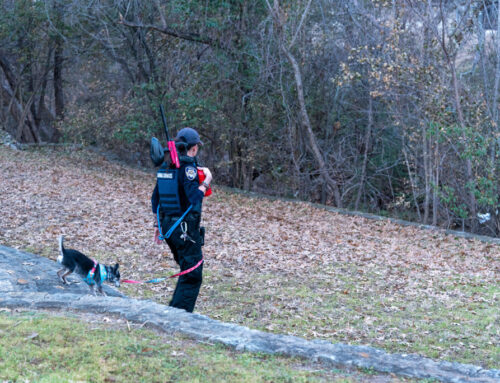The first church I served as a new seminary graduate was the historic Neshaminy-Warwick Presbyterian Church in Bucks County, Penn., about an hour northeast of Philadelphia. Founded in 1726 and situated on 25 acres of ancient oaks along the Neshaminy Creek, it was a lovely place, especially in demand for weddings. It was the place where William Tennent, the first pastor of the church, founded the Log College, which was the first institution for the graduate education of ministers in the colonies. The Log College later moved to New Jersey where it became known as The College of New Jersey, which later became Princeton University.
Those were difficult days for those early settlers. At one point, William Beatty, the second pastor of the old Neshaminy Church, was conscripted into service as a chaplain to troops fighting the Indians on the Western Frontier.
One day, Beatty realized he had a problem: The men were not coming to morning prayer. As much as he coaxed and cajoled them, they didn’t show up for the pastor’s services. Beatty decided to seek the advice of the lieutenant in charge. “How can I get the men to come to morning prayers?” Beatty asked. The officer thought for a moment, pointed his finger in the air, and said, “I’ve got it! We pay the men with a dram of rum each day. We’ll just hand out the rum after morning prayers!”
The next day attendance increased dramatically.
The mid-18th century also was a time of conflict in many American churches, most notably in the controversy between the “Old School” and the “New School.” The New School was riding a wave of revivalism led by such luminaries as the Englishman George Whitfield, who in those days could rally crowds like a modern rock star. The Old School, who were strict, austere Calvinists, accused the New School of the sin of “enthusiasm” (perish the thought!).
Once the Session of the Neshaminy Church, made up of New School folks, called a New School pastor; but the trustees of the church were Old School, and they had the only key to the church. When the Sunday came for the Rev. James Wilson to preach his trial sermon, he had to be rather unceremoniously hoisted through a window to gain access to the pulpit.
I share these historical tidbits because the stories of the past illustrate that while change is the only constant, some things never change — especially human nature, and each supposedly enlightened generation looks naive in the eyes of the next. Perhaps it would do us well to remember that the “last word” on anything is seldom, if ever, really the last word. The past is prologue, as Shakespeare said, and we always have much more to learn.
In the meantime, as we celebrate our Independence Day and remember those who came before us, we owe a debt of gratitude to the historians, whose tales of the past enrich our present.
Blair Monie is senior pastor of the Preston Hollow Presbyterian Church (phpc.org). The Worship section is a regular feature underwritten by Advocate Publishing and the churches listed on these pages. For information about helping support the Worship section, call 214.560.4202.






